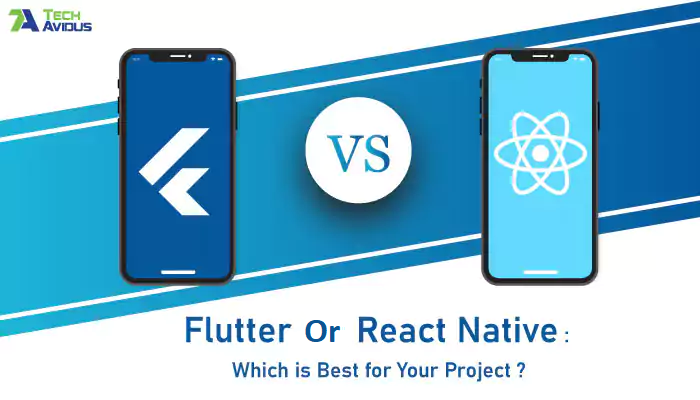
Flutter or React Native is a common debate when deciding which platform to use for mobile application development. Are you looking to build apps quickly, reduce costs, and take advantage of cross-platform development, but unsure which technology to choose?
Flutter and React Native are two highly similar components of cross-platform app development. However, they complement as solid opponents. Both reduce the Time to Market (TTM), which is the time it takes to ship interactive business apps to clients, and increase productivity.
Flutter is the best alternative if you have a restricted budget or need to construct an application quickly. If your app's UI is essential, you can also make a Flutter app.
Flutter and React Native are two open-source platforms that help build cross-platform apps. They convey familiar elements, like hot reload, sometimes named live reload, to React Native creators. What exactly does this indicate? Hot Reload allows developers to notice code changes without renewing the application immediately.
React Native is entirely crafted of JavaScript using React. React Native has this benefit because JavaScript is a widely used language.
Flutter is composed in the Dart language. Dart, a programming language introduced by Google in 2011, is rarely used by developers.
Flutter makes it more comfortable to render similar UI designs on the two most famous mobile platforms, Android and iOS.
React Native is most suitable for native elements on iOS and Android widgets. It allows you to design stunning user interfaces with an extensive array of external UI kits for your apps.
When comparing Flutter vs. React Native performance, Flutter will always win. Native components can interact faster, which improves the overall performance of an application.
React uses JavaScript to connect with native components through a bridge. Flutter is quicker in terms of speed and execution time.
The documentation is a crucial difference between React Native and Flutter. Flutter's documentation is straightforward to read, thanks to its structure and explicit content, and Flutter's documentation is also more uncomplicated and more apparent.
Although React Native is not far behind in documentation support, it keeps the content more generalized than the to-the-point. The React Native app developer guides can be a bit disorganized.
React Native was released as open-source on GitHub in 2015. It is the multiple used frameworks on Stack Overflow.
Flutter is relatively new and has a small community. But developers are slowly embracing Flutter.
Big companies like Walmart, Tesla, Uber Eats, etc., uses React Native. Infact, React Native is an excellent choice for both simple and more complex apps. React Native is still the best choice for small/medium applications that target both platforms, where heavy computations are moved over to the server-side.
Flutter can use in any mobile app. Flutter is a perfect choice for building MVPs, start-ups, and big and medium-sized firms. Flutter is not the only method to create handy apps. Native development can be expensive in some industries.
When you are trying to decide which one is better, Flutter Or React Native comes down to personal preference. The project's parameters and business requirements will determine which framework you choose. Let’s connect to discuss which one will suit more with your dream project.
We have the most experienced Top 1% of Tech Talent Teams who can deliver superior technology solutions.
All Rights Reserved. Copyright © 2025 | TechAvidus